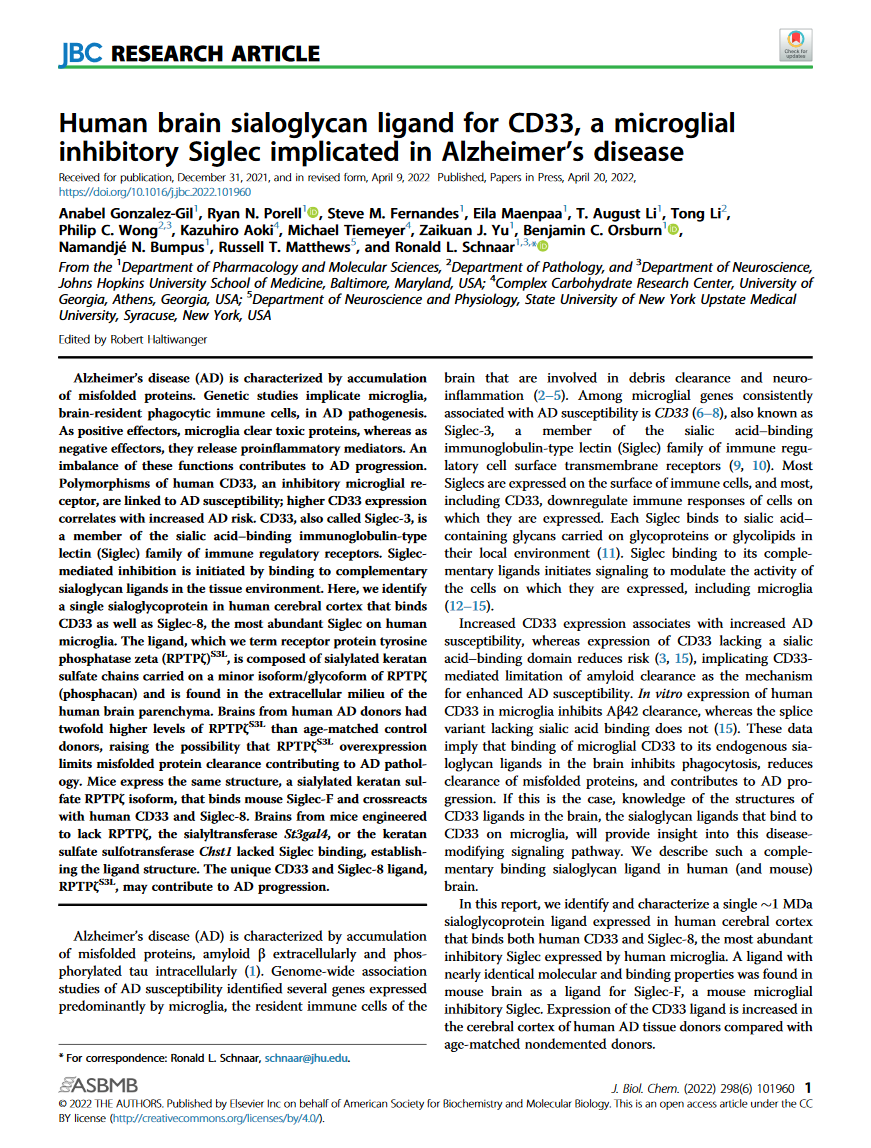28.07.2023
Human brain sialoglycan ligand for CD33, a microglial inhibitory Siglec implicated in Alzheimer's disease
Journal of Biological Chemistry, 2022
Abstract
Alzheimer's disease (AD) is characterized by accumulation of misfolded proteins. Genetic studies implicate microglia, brain-resident phagocytic immune cells, in AD pathogenesis. As positive effectors, microglia clear toxic proteins, whereas as negative effectors, they release proinflammatory mediators. An imbalance of these functions contributes to AD progression. Polymorphisms of human CD33, an inhibitory microglial receptor, are linked to AD susceptibility; higher CD33 expression correlates with increased AD risk. CD33, also called Siglec-3, is a member of the sialic acid-binding immunoglobulin-type lectin (Siglec) family of immune regulatory receptors. Siglec-mediated inhibition is initiated by binding to complementary sialoglycan ligands in the tissue environment. Here, we identify a single sialoglycoprotein in human cerebral cortex that binds CD33 as well as Siglec-8, the most abundant Siglec on human microglia. The ligand, which we term receptor protein tyrosine phosphatase zeta (RPTPζ)S3L, is composed of sialylated keratan sulfate chains carried on a minor isoform/glycoform of RPTPζ (phosphacan) and is found in the extracellular milieu of the human brain parenchyma. Brains from human AD donors had twofold higher levels of RPTPζS3L than age-matched control donors, raising the possibility that RPTPζS3L overexpression limits misfolded protein clearance contributing to AD pathology. Mice express the same structure, a sialylated keratan sulfate RPTPζ isoform, that binds mouse Siglec-F and crossreacts with human CD33 and Siglec-8. Brains from mice engineered to lack RPTPζ, the sialyltransferase St3gal4, or the keratan sulfate sulfotransferase Chst1 lacked Siglec binding, establishing the ligand structure. The unique CD33 and Siglec-8 ligand, RPTPζS3L, may contribute to AD progression.
TrueVIEW Autofluorescence Quenching Kit (VEC-SP-8400) and BLOXALL Endogenous Blocking Solution (VEC-SP-6000) manufactured by our partner Vector Laboratories are featured in this study.
>> View article


